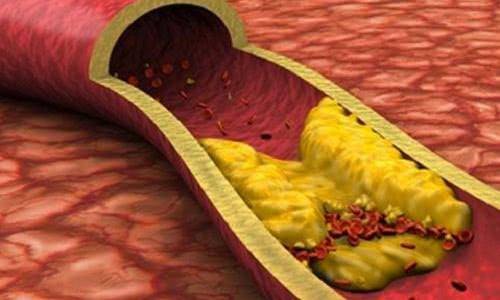Blood is a fundamental component for human survival, running through the body in blood vessels of all sizes, delivering nutrients and oxygen to cells, promoting metabolic processes, While blood vessels serve as the transportation pathway for blood, with age, enlarged blood vessels easily accumulate “garbage” such as fat, cholesterol, calcium, hindering the smooth flow of blood, causing blood to become viscous, damaging capillaries, and even blocking them. Over time, thickened blood can lead to various complications in the body, such as cerebral arteriosclerosis, cerebral infarction, cerebral thrombosis, which I believe are familiar terms to everyone and are significant factors that jeopardize people’s health.
Once thickened blood is detected, it needs proper adjustment, especially in dietary habits since many ailments are caused by what we eat. Today, I will introduce to you how to maintain a healthy diet when dealing with thickened blood.
For individuals with thickened blood, consume less of the “2 whites” and more of the “2 blacks and 2 yellows” to regulate blood lipids and prevent blood clots!
Avoid consuming these “2 whites”:
1. Salt:
Salt is the king of all flavors, the best seasoning for food, a meal is incomplete without it. However, excessive salt intake can trigger various cardiovascular diseases, making the blood harder and more brittle, leading to hypertension, myocardial infarction, and various cancers. Consuming too much salt can inhibit the activity of respiratory cells, reduce saliva secretion in the oral cavity, weaken the respiratory system’s ability to fight diseases, allowing bacteria and viruses to enter the body unhindered. Therefore, individuals with thickened blood should opt for a bland diet with less salt.
2. Sugar:
According to some studies, sugar has a greater impact on blood lipids than saturated fatty acids, leading to elevated blood lipids, thickening the blood. Moreover, sugar is closely linked to obesity, diabetes, hypertension, gout, coronary heart disease, among other diseases, making it a major factor contributing to illnesses. Therefore, individuals who already have thickened blood should consume less sugar and avoid sugary beverages.
For those with thickened blood, apart from eating less of the aforementioned “2 whites,” consume more of the “2 blacks and 2 yellows” to regulate blood lipids and prevent blood clots!
The “2 blacks”:
1. Black buckwheat:
Known as the “black pearl” in the plant kingdom, black buckwheat is rich in a substance called “rutin,” which is crucial in reducing blood lipids, diluting thickened blood, softening blood vessels, enhancing elasticity, promoting the elimination of blood waste, greatly beneficial to blood health.
2. Black fungus:
Black fungus is renowned for being the “element of dizziness.” It contains ample protein, as well as calcium, phosphorus, iron, and substances such as wood ear polysaccharides. Among them, wood ear polysaccharides have anti-coagulation effects, inhibiting platelet aggregation, regulating blood lipids, preventing thrombosis, and reducing atherosclerosis.
The “2 yellows”:
1. Lemon:
Initially known for its beauty benefits, lemons are rich in vitamin C, which alleviates blood clotting, prevents hypertension and myocardial infarction, helps contract blood vessels, strengthens capillaries, promotes blood lipid and waste discharge.
2. Corn:
Corn is an excellent coarse grain known for its remarkable benefit of preventing cardiovascular diseases. It contains large quantities of unsaturated fatty acids, which can lower cholesterol levels in the blood.
For individuals with thickened blood, consume less of the “2 whites” and more of the “2 blacks and 2 yellows” to assist in regulating blood lipids and preventing blood clots! (Images sourced from the internet)


